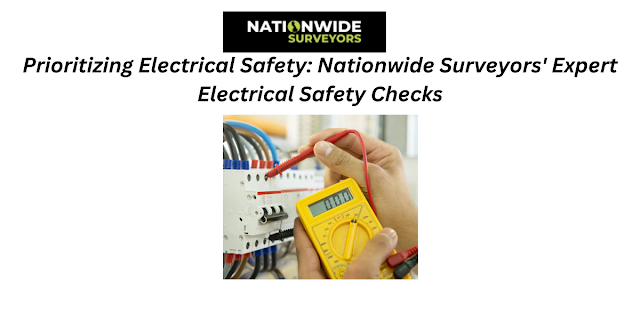How PAT Testing Certificates Ensure Compliance and Safety for Businesses
In today’s highly
regulated world, businesses must prioritize the safety of their employees,
customers, and assets. One key aspect of maintaining a safe working environment
is ensuring the proper function and safety of electrical appliances through PAT
(Portable Appliance Testing). A PAT
testing certificates serves as formal proof that all portable
electrical appliances have been inspected, tested, and deemed safe to use.
Let’s explore how these certificates help businesses ensure both compliance and
safety.
What is PAT Testing?
PAT testing involves the
examination of electrical appliances and equipment to confirm they are safe for
use. The process includes visual inspections to detect visible faults like
damaged cables or sockets, followed by more detailed electrical tests to assess
issues that cannot be seen by the naked eye, such as insulation problems or
grounding deficiencies. The goal is to prevent electrical hazards, including
shocks, burns, or fire, that could occur due to faulty appliances.
Why PAT Testing Matters
for Compliance
Many countries, including
the UK, have specific legal requirements related to the safety of electrical
appliances in workplaces. The Health and Safety at Work Act of 1974 and the
Electricity at Work Regulations of 1989 outline employers’ responsibilities to
maintain all electrical systems in a safe condition. Though PAT testing itself
may not be a legal requirement in every jurisdiction, conducting regular tests
is one of the most effective ways to meet legal obligations and avoid potential
fines or penalties.
A PAT testing certificate
demonstrates that a business has taken reasonable steps to ensure the safety of
its electrical equipment. This document is often requested during safety audits
or insurance inspections and can serve as crucial evidence in the event of an
incident, showing that the company adhered to safety protocols.
The Importance of PAT
Testing for Business Safety
Beyond regulatory
compliance, PAT testing plays a vital role in safeguarding the people within a
business and the premises itself. Regular PAT testing helps businesses to:
- Prevent Electrical Fires:
Faulty appliances can overheat, leading to electrical fires. PAT testing
helps identify appliances that could pose a fire risk, allowing businesses
to address problems before they escalate.
- Avoid Electrocution Risks:
Broken wires, damaged plugs, or improper grounding can cause electric
shocks to users. PAT testing helps reduce the risk of serious injury by
ensuring that appliances are electrically sound.
- Minimize Downtime and Equipment
Damage: Identifying and fixing electrical
issues early can prevent costly breakdowns. By maintaining appliances in
good working condition, businesses can avoid disruptions that affect
productivity and revenue.
- Create a Safer Work Environment:
Employees are more likely to feel safe in a workplace where regular safety
checks are conducted. This can foster a culture of health and safety that
boosts morale and reduces workplace accidents.
What a PAT Testing
Certificate Includes
Upon completion of PAT
testing, a qualified technician issues a PAT testing certificate. This document
typically includes:
- The name and qualifications of the
person conducting the test
- Details of the appliances tested
- The results of each test (pass or
fail)
- The date of the test and the next
scheduled test date
This certificate should
be kept in a secure place and made readily available during inspections or
audits. In some cases, appliances will also receive a label indicating their
test status, which serves as a quick reference for employees.
How Often Should PAT
Testing Be Conducted?
There is no universal
rule for the frequency of PAT testing, as it largely depends on the environment
in which appliances are used. However, high-risk environments such as
construction sites or industrial facilities may require more frequent testing
than low-risk environments like offices. A risk assessment conducted by the
business or a qualified technician can help determine the appropriate testing
intervals.
Final Thoughts: A
Critical Part of Business Safety
Nationwide Surveyors are
essential not only for legal compliance but also for ensuring the safety of
electrical equipment in the workplace. By regularly testing portable
appliances, businesses can protect their employees, customers, and assets from
electrical hazards while avoiding legal complications. Investing in PAT testing
is a small but vital step towards creating a safer, more compliant business
environment.




Comments
Post a Comment